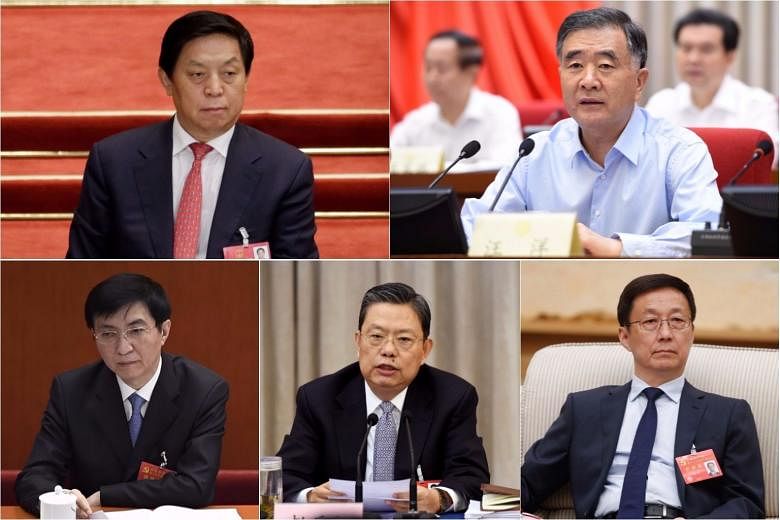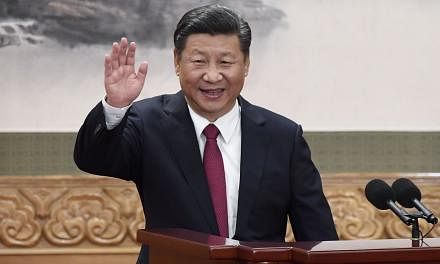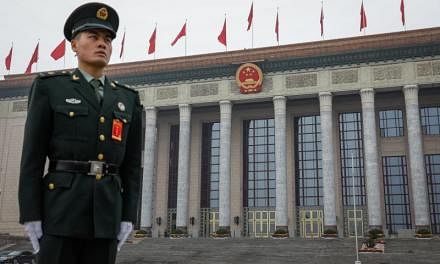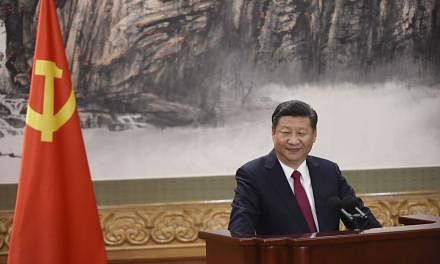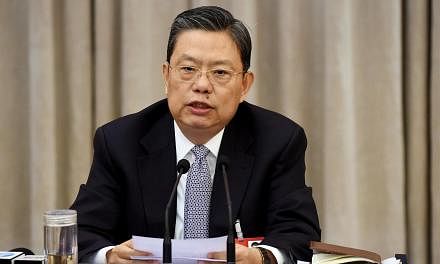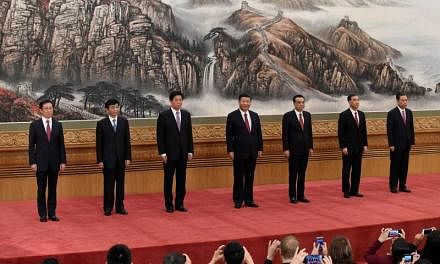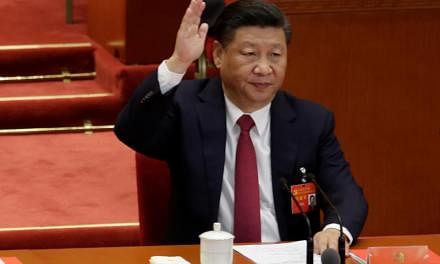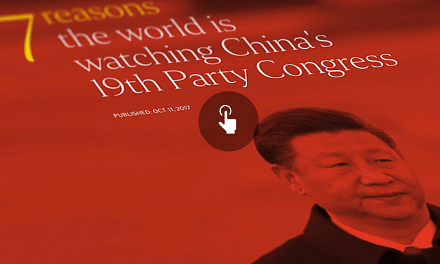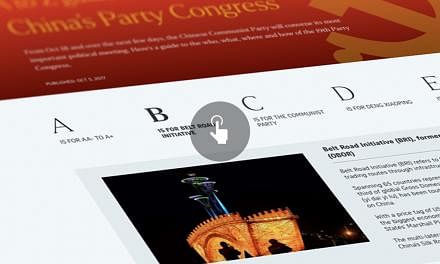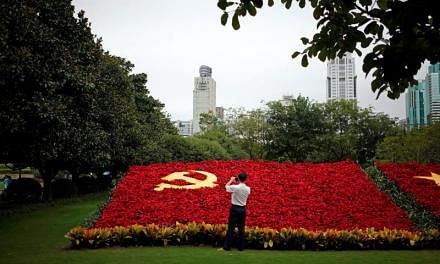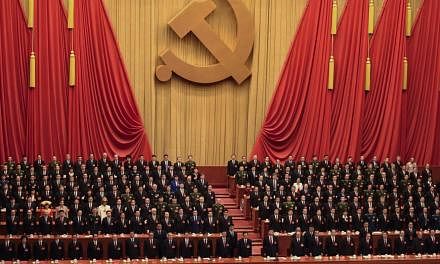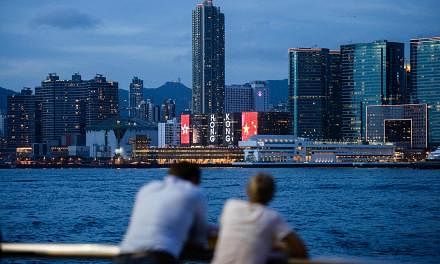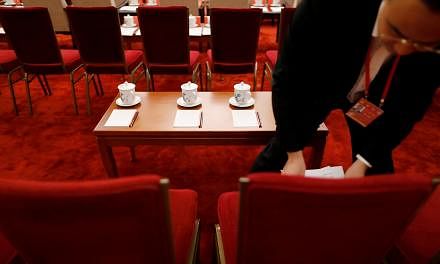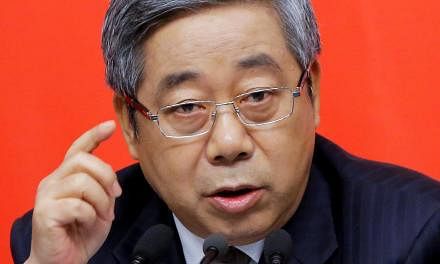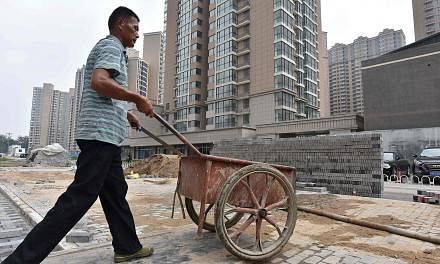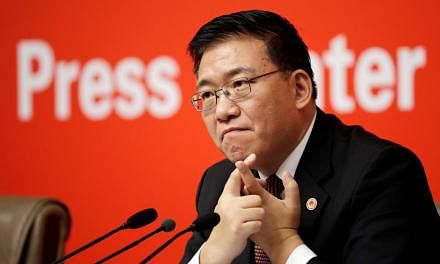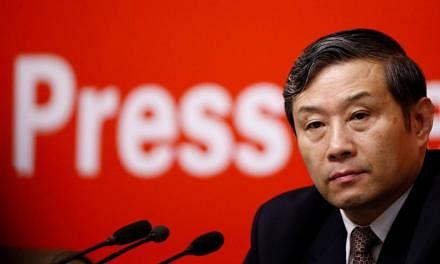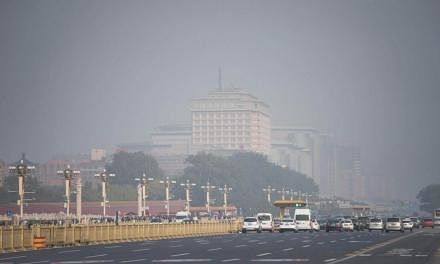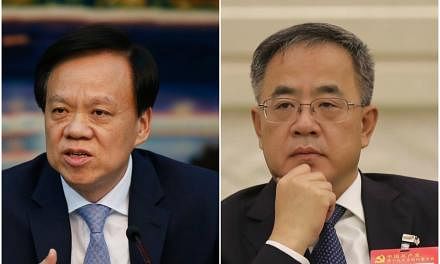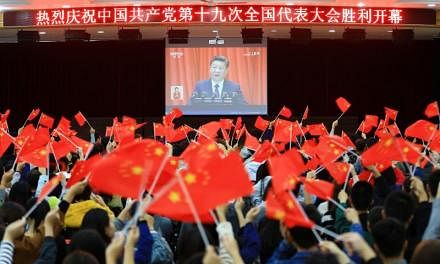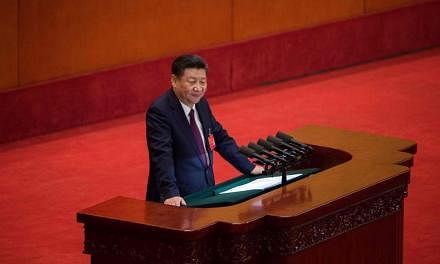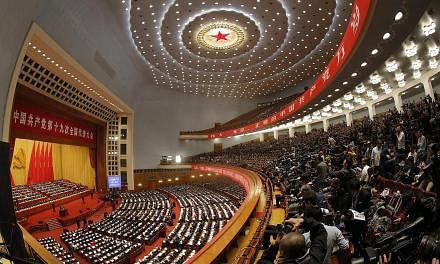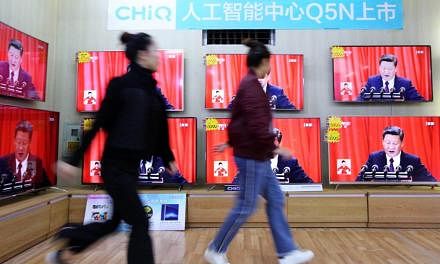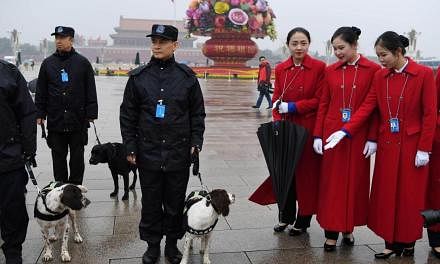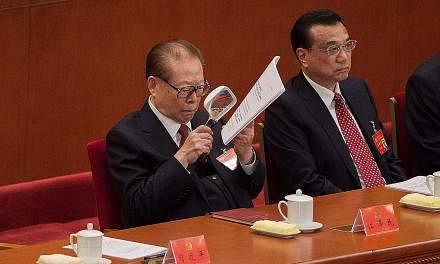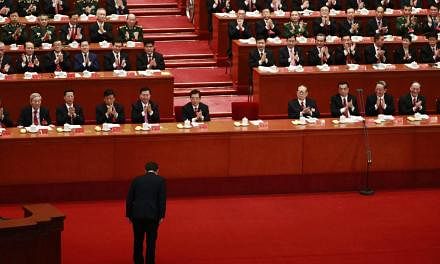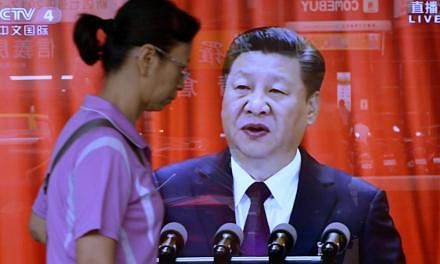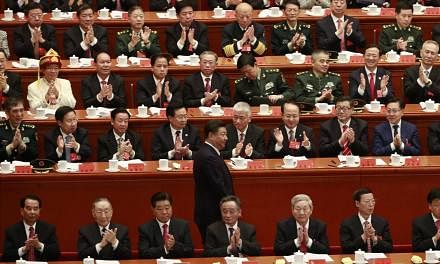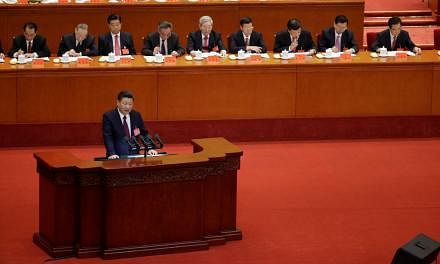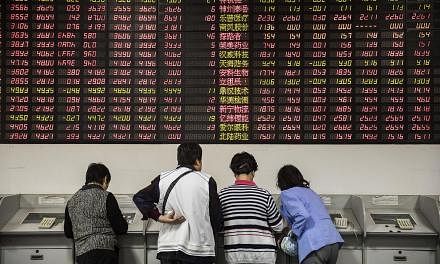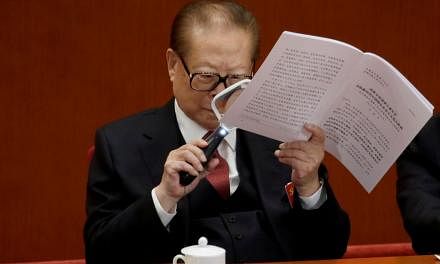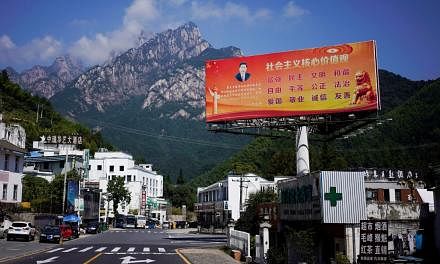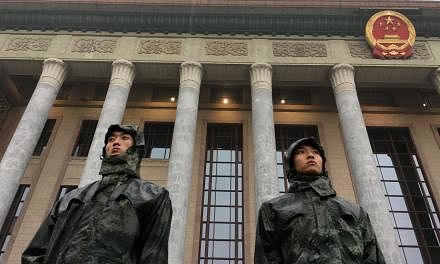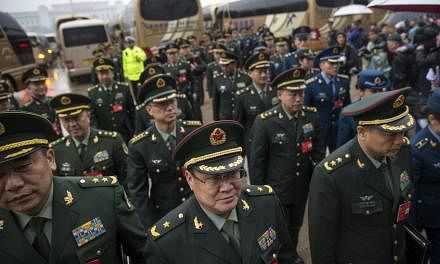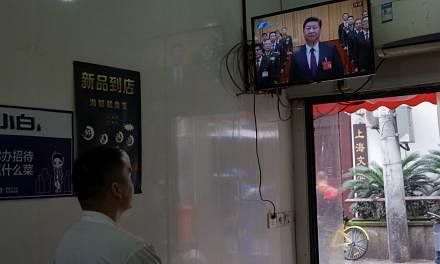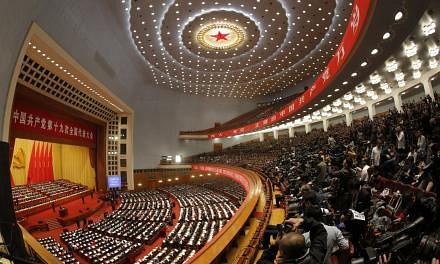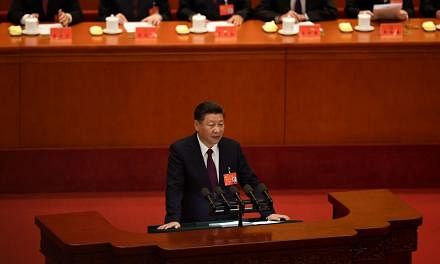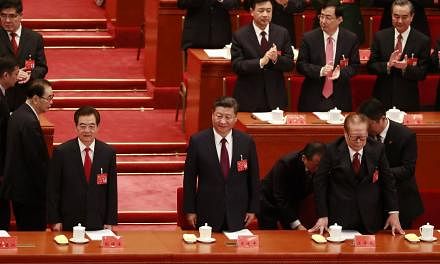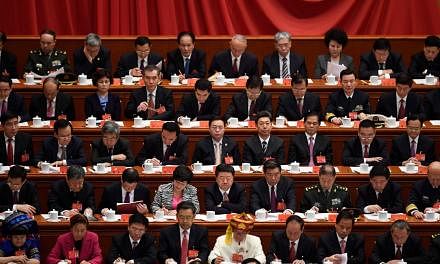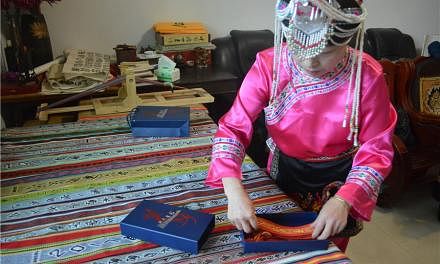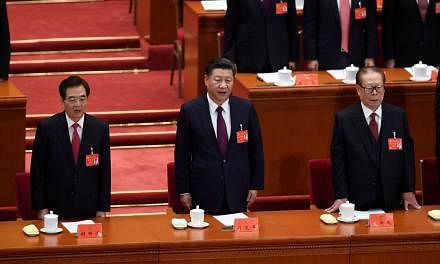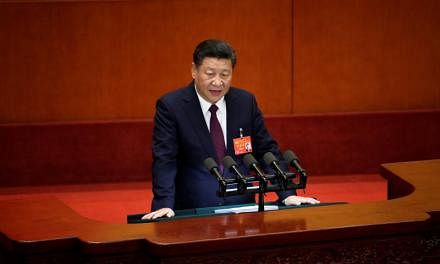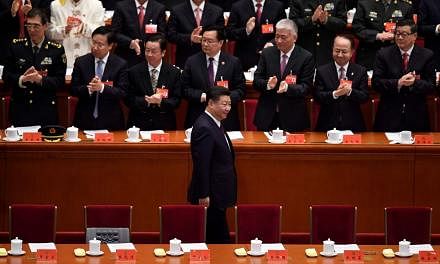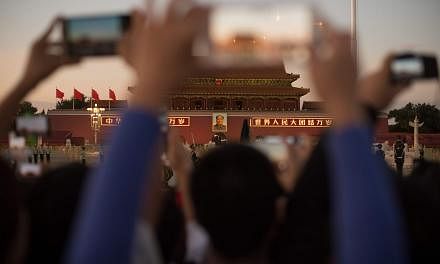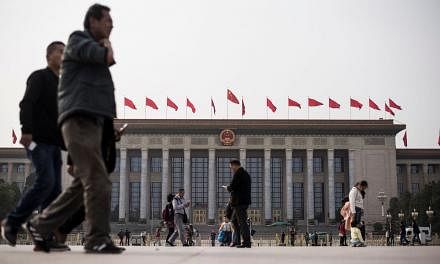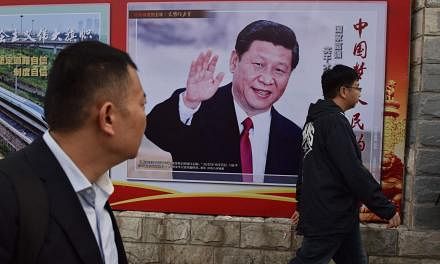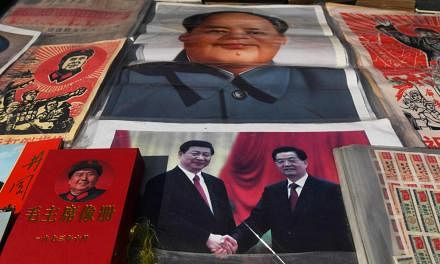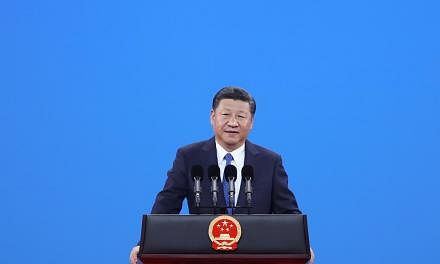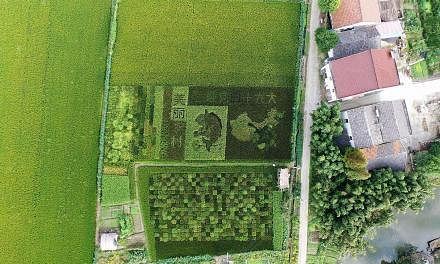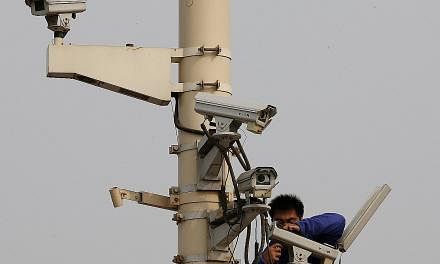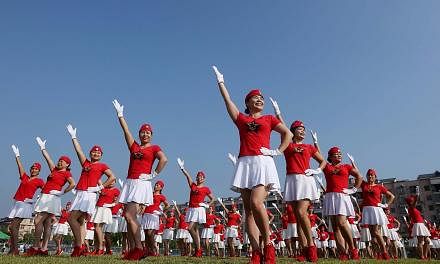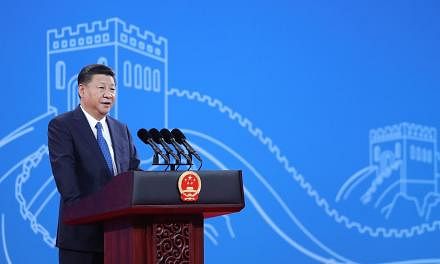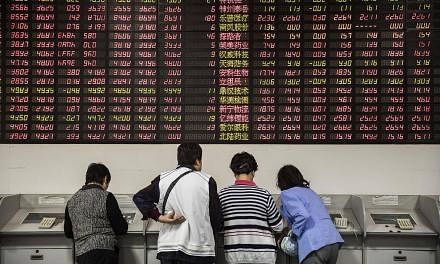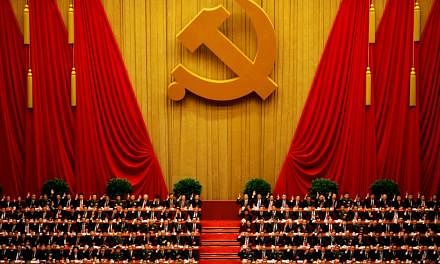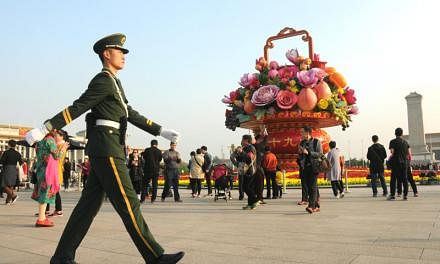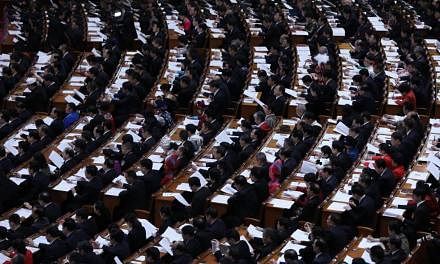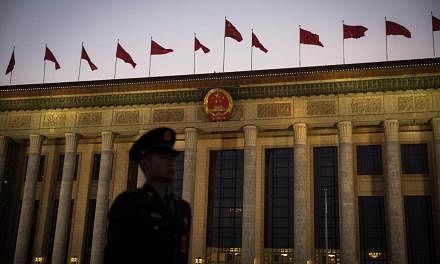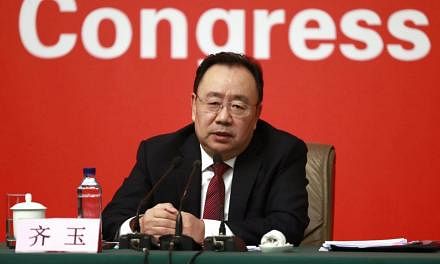BEIJING - China's Communist Party on Wednesday (Oct 25) unveiled a new lineup for its Politburo Standing Committee (PSC).
Here are the seven men, arranged in order of their ranks on the party hierarchy, who sit on China's top governing body.
Xi Jinping, 64
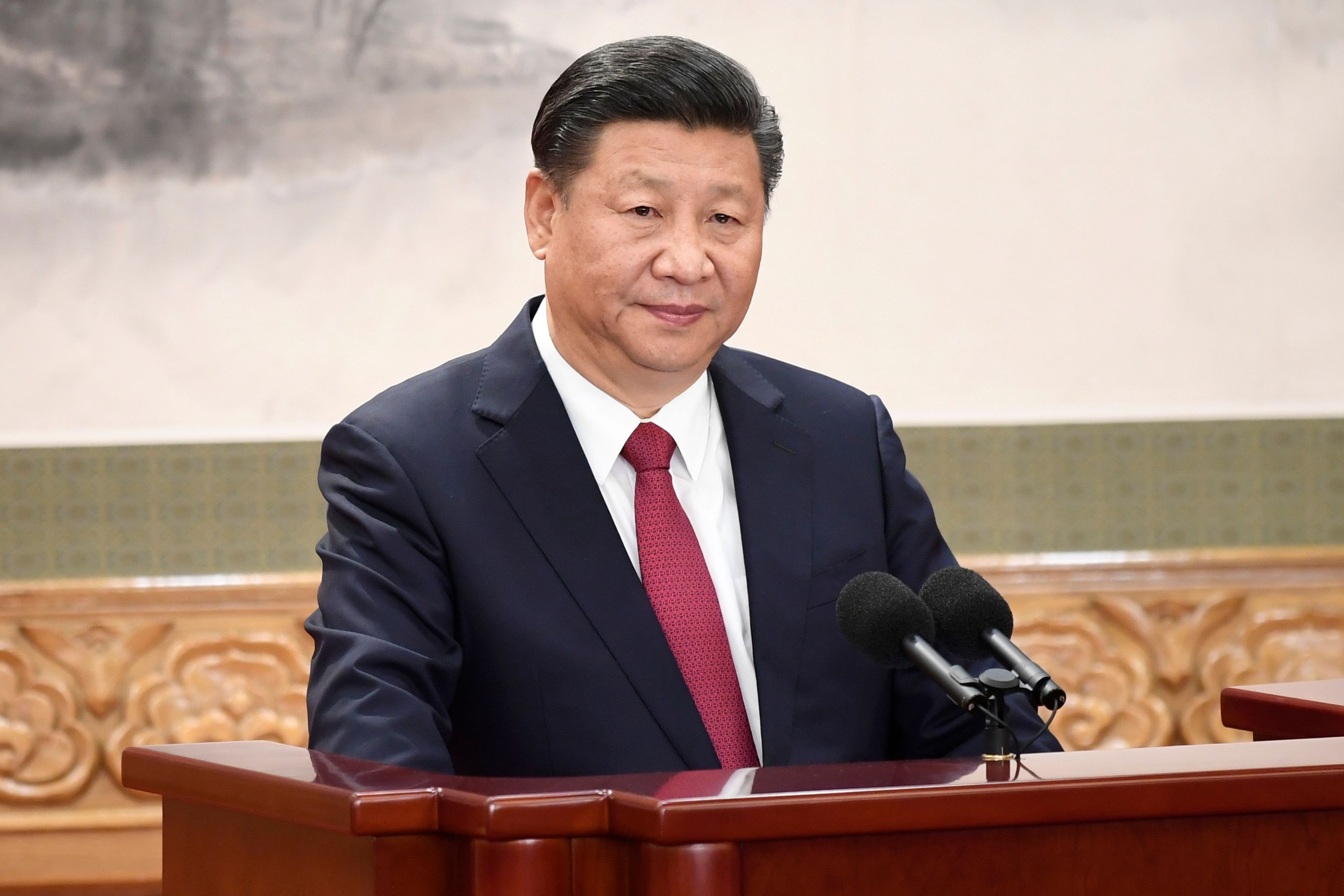
Mr Xi became the top leader in the Chinese leadership in 2012. Mr Xi has consolidated enough authority to be considered the most powerful Chinese leader since Deng Xiaoping. Named "core" leader of the CCP in October 2016, he further cemented his grip on power after his political thoughts was written into the party charter at the recently concluded 19th Party Congress.
The amendments to the party charter that were passed by the party's week-long 19th national congress at its closing on Tuesday (Oct 24) morning included Mr Xi's political thinking worded as: Xi Jinping Thought on Socialism with Chinese Characteristics for a New Era. This sealed Mr Xi's status ahead of his two immediate predecessors and Deng Xiaoping and just behind Mao Zedong.
Mr Xi was elected on Wednesday the Chinese Communist Party's General Secretary and Chairman of the Central Military Commission (CMC) which oversees the People's Liberation Army.
Li Keqiang, 62
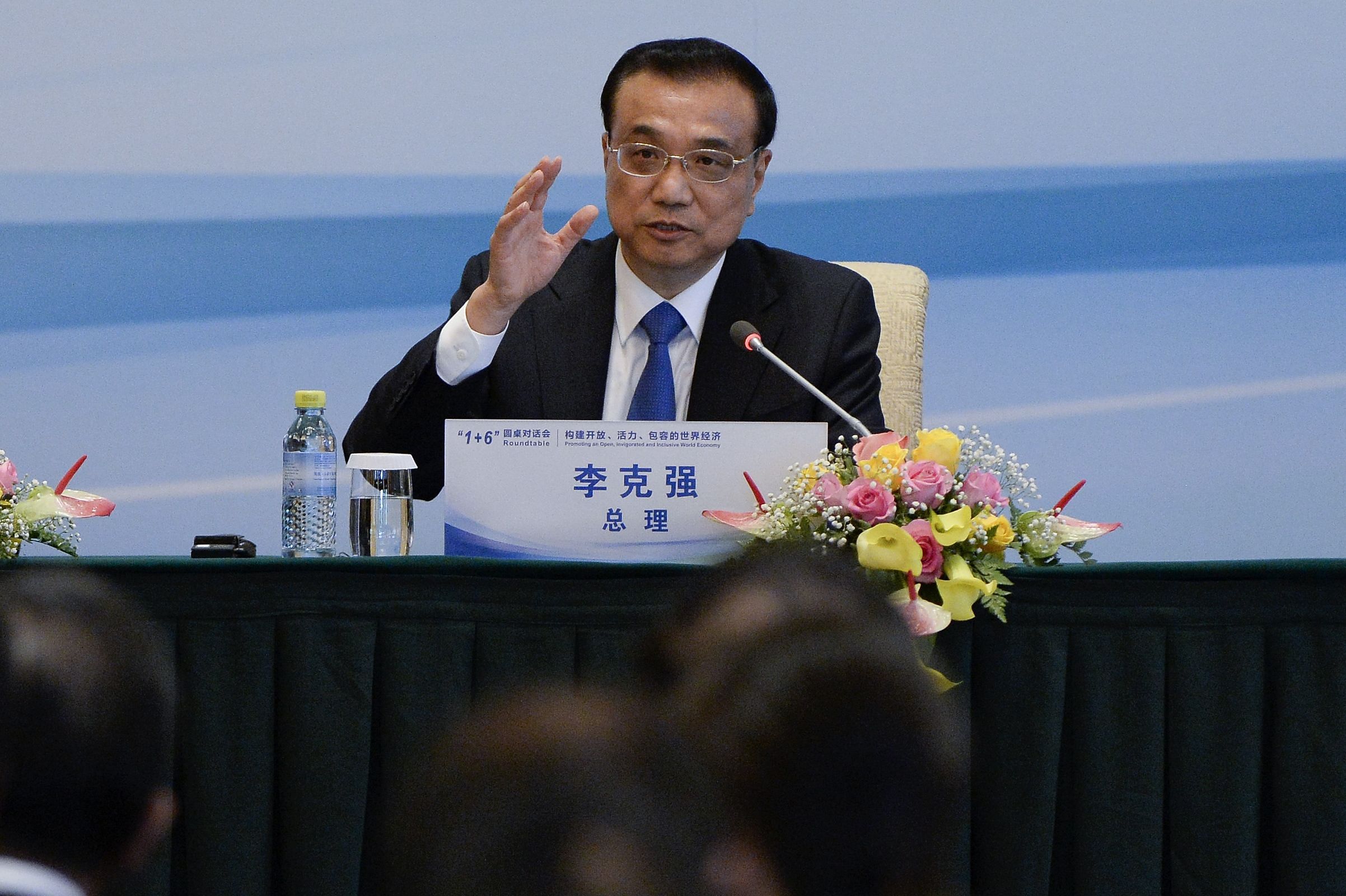
Mr Li's key portfolios include economic management and finance. But Mr Li, widely seen as an ally to former president Hu Jintao, has had his power reduced. Mr Xi has taken over more decision-making roles through the formation of high-level steering committees.
Both Mr Xi and Mr Li were first promoted to the Standing Committee at the 17th Party Congress in 2007, in a clear signal that the pair would succeed Hu Jintao and Wen Jiabao and occupy the top two offices, as transpired five years later.
In a break with convention, President Xi has not named potential successors to the new PSC lineup on Wednesday.
Li Zhanshu, 67
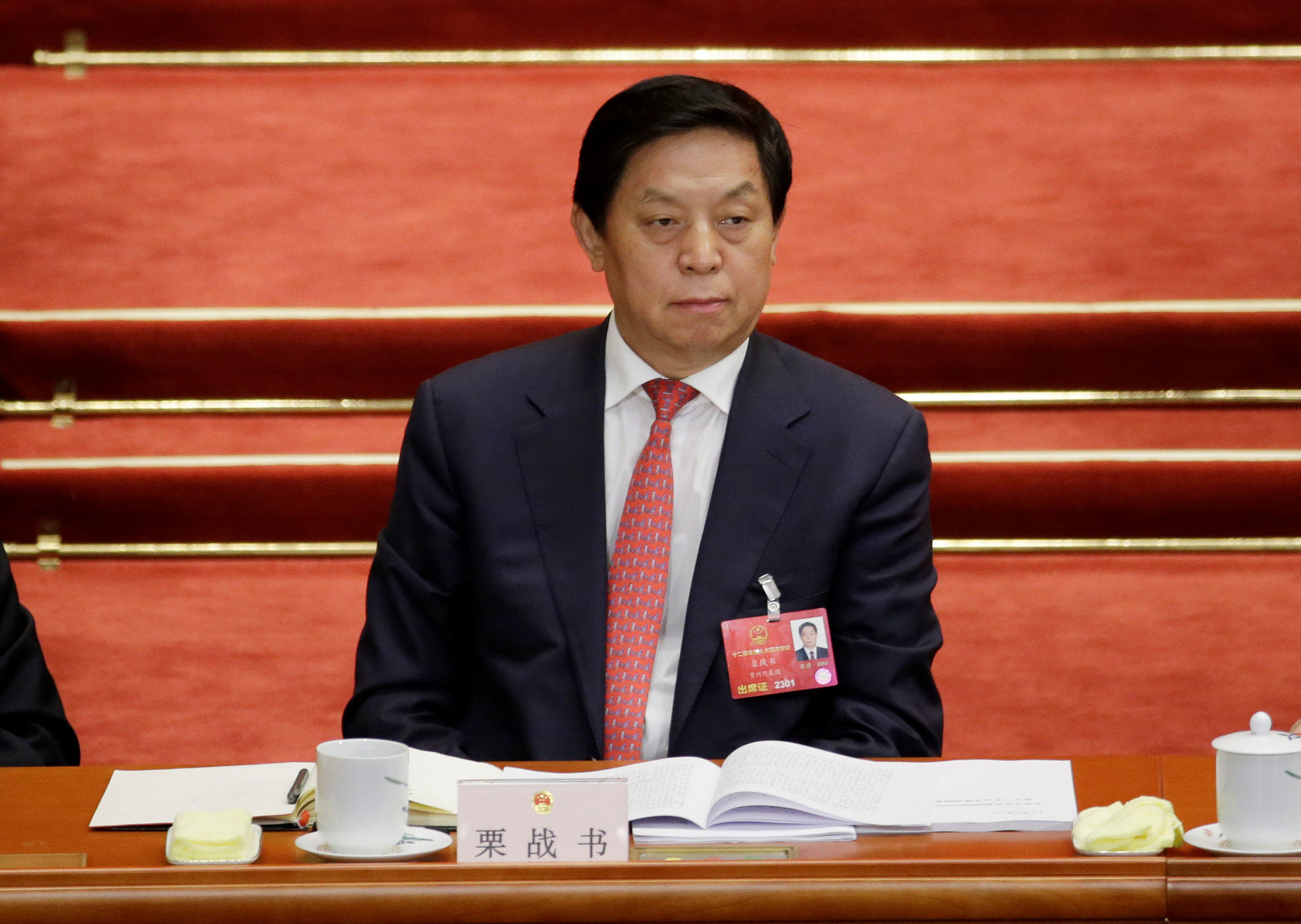
Mr Li is ranked No. 3 in the Chinese leadership hierarchy, after President Xi Jinping and Premier Li Keqiang. President Xi and Premier Li were elected to the PSC for a second term on Wednesday.
As director of the Central Committee's General Office, he is Mr Xi's chief of staff. The General Office is a powerful agency that oversees the itineraries of all top leaders.
A Xi loyalist with no strong ties to the President's predecessors, he is often seen at the side of Mr Xi on domestic and foreign trips. He has also become the leader's personal liaison to Russian President Vladimir Putin.
He is set to be Mr Xi's strongest ally now that anti-graft czar Wang Qishan has stepped down. His friendship with Mr Xi goes back to the 1980s when both men headed neighbouring counties in Hebei province.
Wang Yang, 62
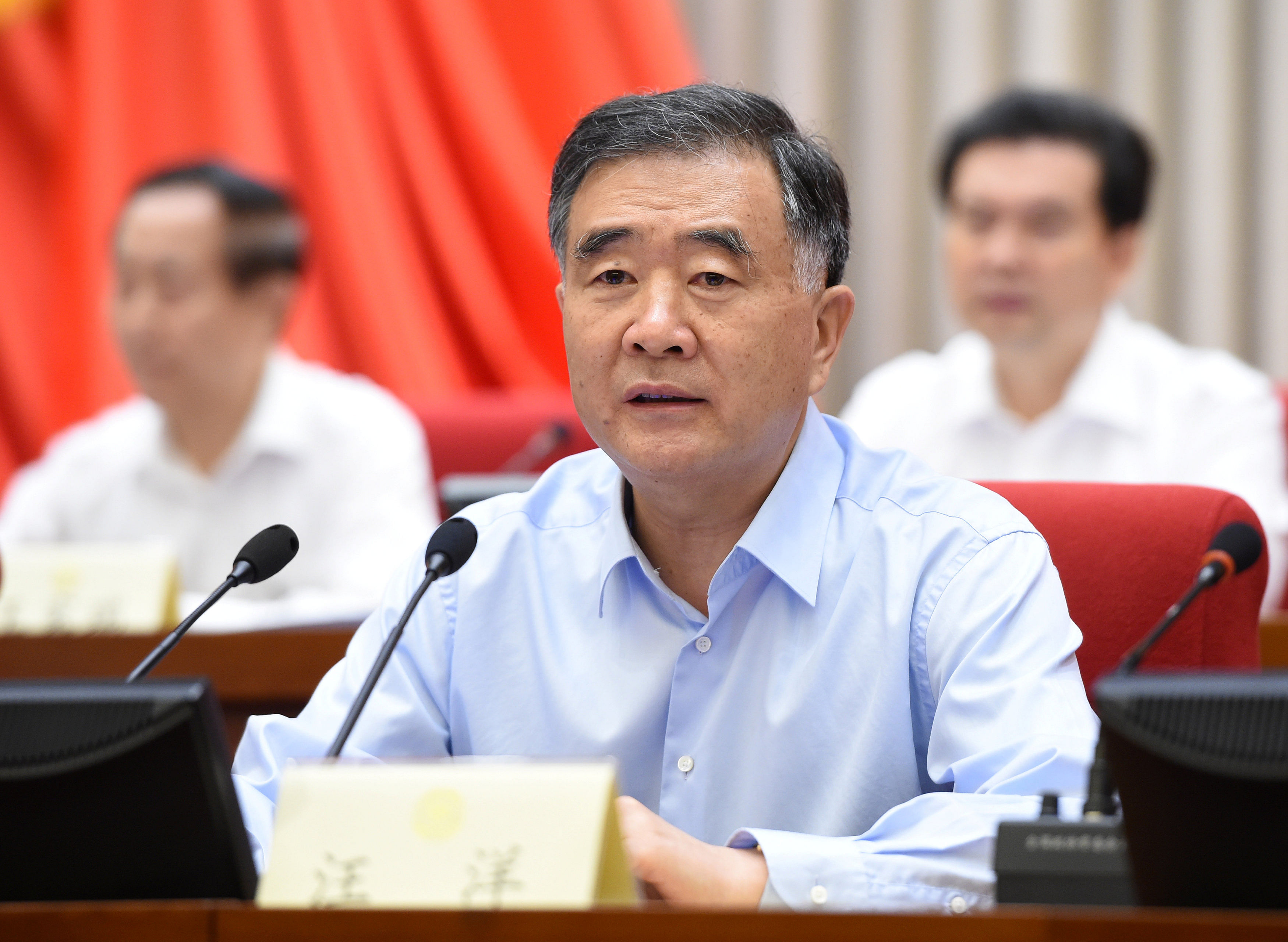
Now a vice-premier, he is aligned with Premier Li and former president Hu Jintao through his ties with the Communist Youth League. Seen as a significant figure familiar with foreign policies, he headed the Chinese delegation at the first US-China Comprehensive Economic Dialogue in July.
He was party chief of Chongqing municipality and Guangdong province, acquitting himself well in those roles. Born into a poor rural family in eastern Anhui province, Mr Wang went to work in a factory at age 17 to support his family after his father died.
He rose to prominence before the 18th party congress in 2012 as a leading voice in an unusually public debate about China's economy. He supported a relatively liberal package of policies - called the "Guangdong model" for the southern industrial province he ran at the time - that allowed a greater role for trade unions and NGOs.
He even made Time Magazine's most-influential list after bringing pro-democracy protests in the fishing village of Wukan to a peaceful resolution.
Wang Huning, 62
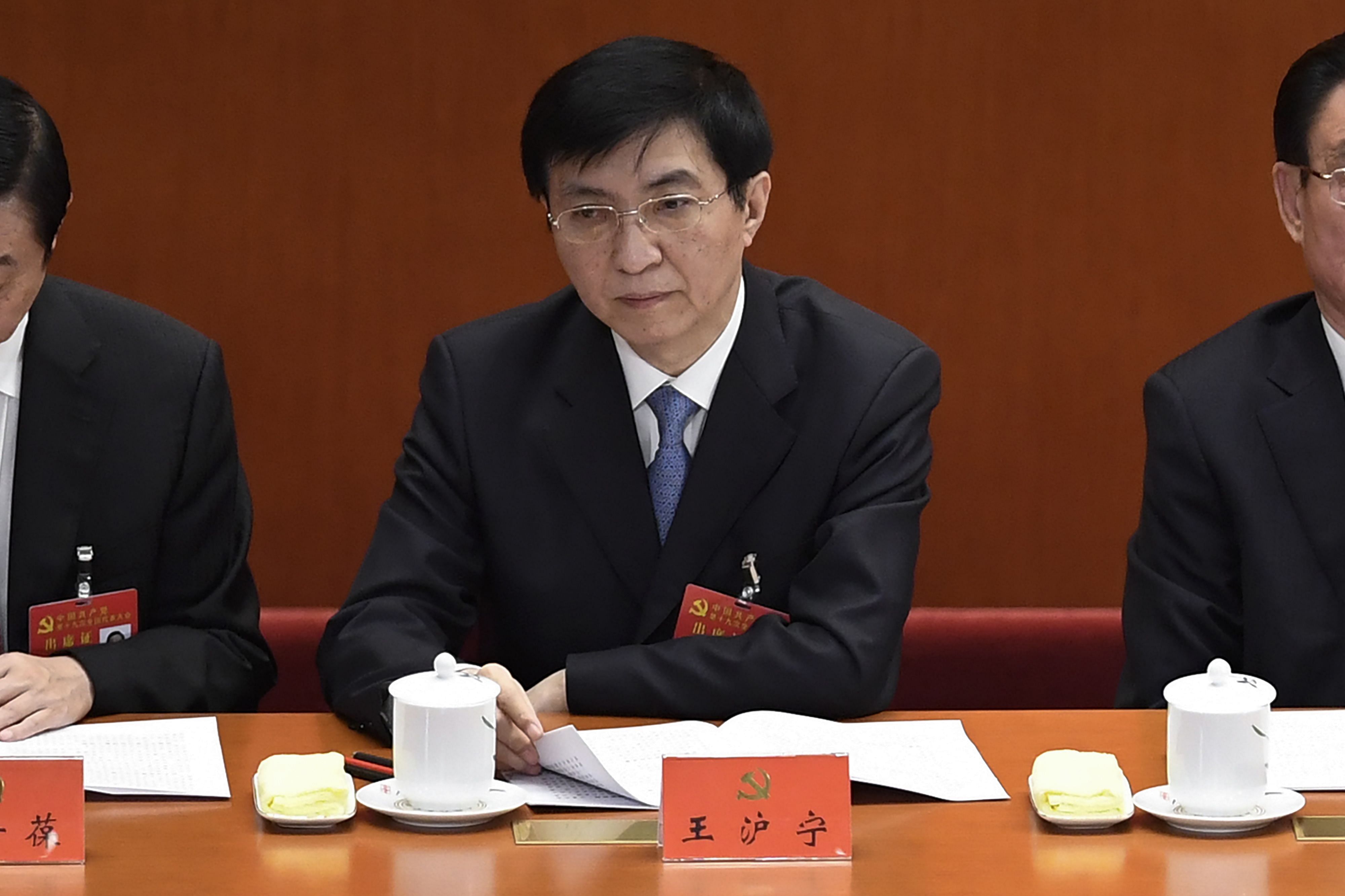
The director of the Policy Research Office, a think tank of the Central Committee, has been the key adviser to former presidents Jiang Zemin, Hu Jintao and now Mr Xi.
The former dean of Fudan University Law School helped draft then president Jiang's "Three Represents", which drew entrepreneurs, capitalists and intellectuals under the party's umbrella. He is also the architect of President Xi's China Dream ideological campaign. As an academic, he studied power transitions and legal systems and advocated the strengths of strong central leadership over fractious democratic systems.
His promotion to the PSC is read as a sign that Mr Xi sees the need to have someone in the top leadership who can provide theoretical guidance for deepening of reforms including political reform.
Zhao Leji, 60
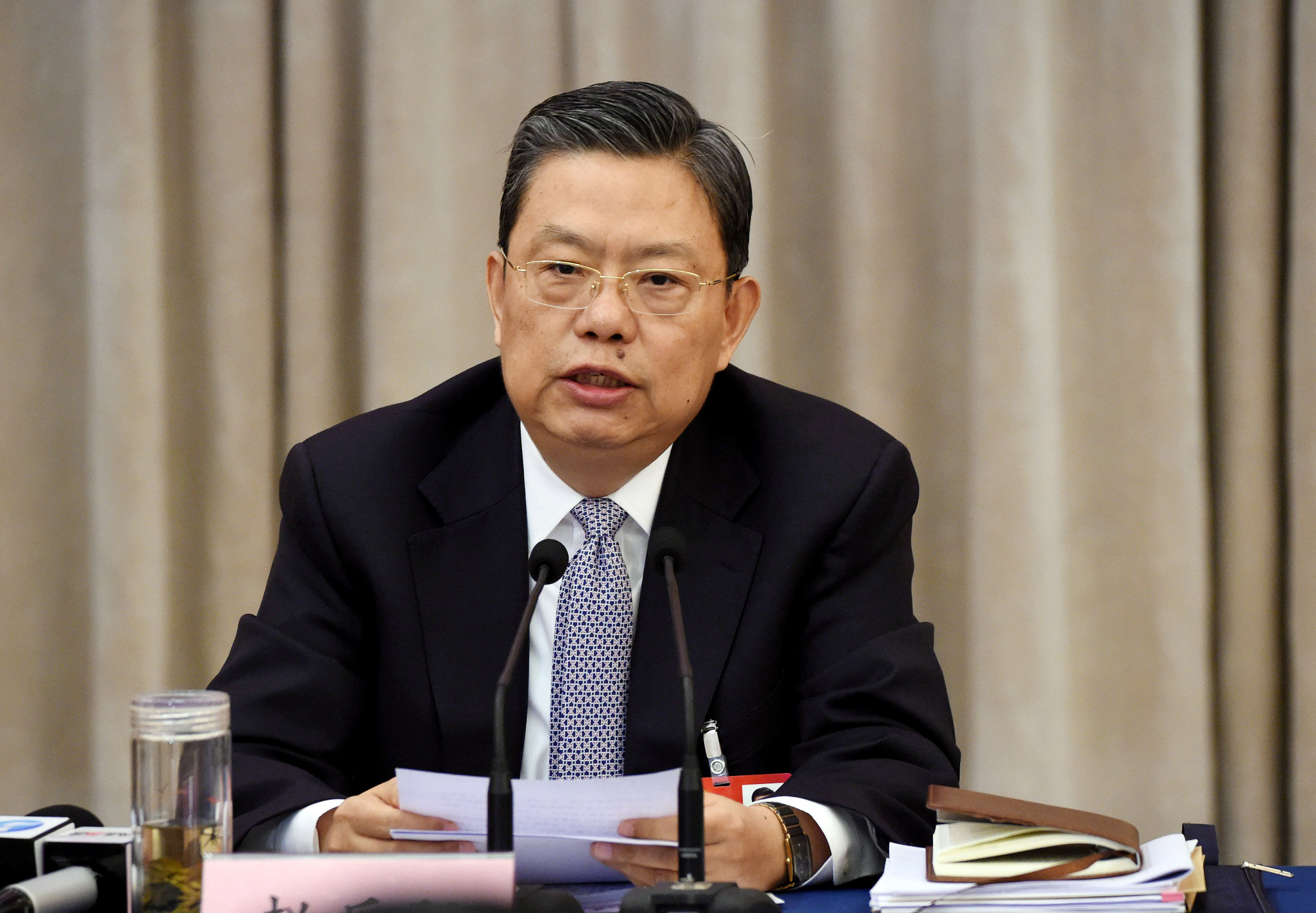
The director of the influential Organisation Department of the Communist Party is in charge of personnel appointments. He had no strong factional ties when appointed to the Politburo in 2012, but hails from Mr Xi's home province of Shaanxi and was its party secretary in 2007-2012.
Mr Zhao spent almost three decades climbing the ranks in Qinghai, one of the poorest regions in China that is also at the crossroads of some of the country's largest ethnic groups. He eventually became the country's youngest provincial leader, overseeing the doubling of Qinghai's economic figures.
After a stint running nearby Shaanxi province, he was catapulted to the Organisation Department which holds sway over appointments to senior patronage jobs across the country, from provinces to central party agencies. That made him instrumental in President Xi's efforts to position allies ahead of the current reshuffle.
He is now seen as one of Mr Xi's close confidants and part of the rising Shaanxi clique of leaders from the north-western province, on whom Mr Xi appears to rely. He has a degree in philosophy from Peking University.
He was elected on Wednesday as head of China's anti-graft commission, the party's Central Committee for Discipline Inspection (CCDI), taking over from Xi's close ally Wang Qishan.
Han Zheng, 63
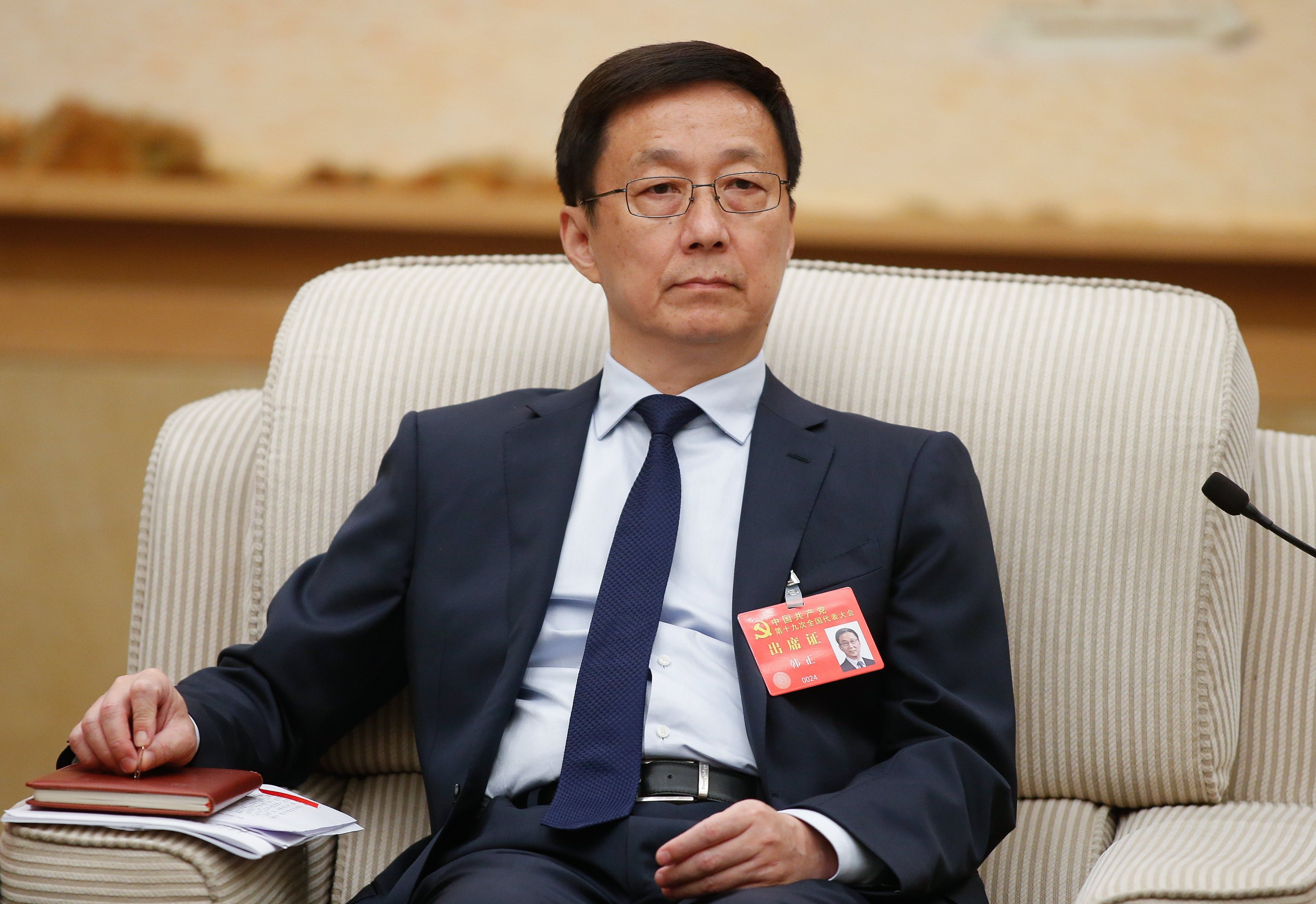
Now Shanghai party secretary, he was mayor of Shanghai when his path crossed that of Mr Xi in 2007, when the latter was the financial hub's party boss for several months.
He has been described as a confidant of Mr Xi and affiliated with the now much-diminished Shanghai clique of former president Jiang Zemin.
Mr Han's ascension to the Standing Committee is all the more remarkable after the shocking 2006 downfall of his then boss Chen Liangyu amid bribery charges and clashes with party central.
As mayor, Mr Han led a US$44 billion (S$60 billion) infrastructure makeover for the 2010 Shanghai Expo. He has faced challenges since taking over as Shanghai party chief in 2012, from runaway property prices to lackluster interest in a new free-trade zone to a New Year's stampede that killed 36.
SOURCES: THE STRAITS TIMES, BLOOMBERG, REUTERS
